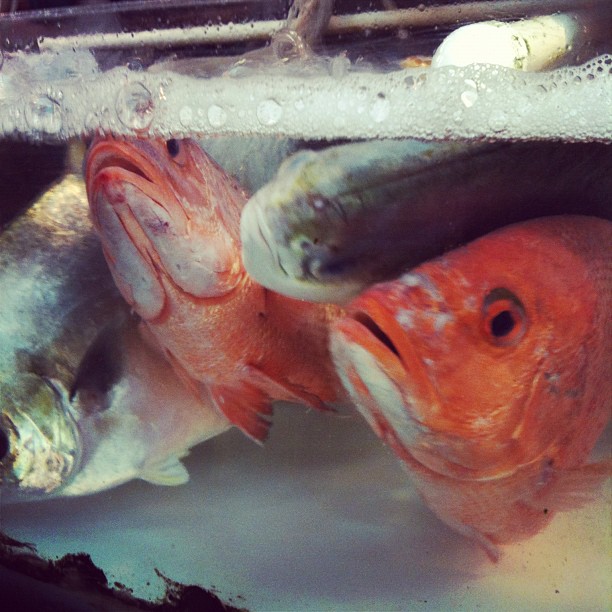 |
| Hong Kong fish market (Image: Marcel Ekkel) |
By 2030, the World Bank predicts that two in every three fish consumed on Earth will come from a fish farm, Time Out Hong Kong reports.
In Hong Kong, we eat twice as much fish per person as the global average. So, if we’re going to meet this huge demand, we need to practice local fish farming in an environmentally responsible manner. And we need to do it soon. While captive fisheries located in the sea around the world have long been under fire for overexploiting and damaging the oceans, the other forms of non-marine aquaculture are not as flawless as they may at first seem.
In fact, all captive fisheries are linked to environmental damage in the ocean, regardless of their location. Hatcheries, for example, where young fish are bred, are constantly in want of new genes to prevent inbreeding. This in turn drives a demand for hunting of large, fecund fishes in the seas. Young wild fish – often called ‘trash fish’ due to their low market value – are also sought and hunted as food for aquaculture’s valuable ‘cash crops’, like groupers. The uneaten feed and waste from inshore fish farms can also easily trigger algal blooms, or red tides, which cause widespread havoc on ecosystems.
There are four main types of aquaculture, also known as fish farming, currently carried out in HK. Polyculture features multiple species in a single space; indoor mariculture uses seawater in tanks under cover; inshore mariculture sees farms located directly into the ocean and aquaponics is a complete system which combines aquaculture with hydrophonics (plants) in a symbiotic environment. Join us as we explore how these four practices work and what challenges they face...
Read the full article HERE.
The Aquaculturists
This blog is maintained by The Aquaculturists staff and is supported by the
magazine International Aquafeed which is published by Perendale Publishers Ltd
For additional daily news from aquaculture around the world: aquaculture-news

No comments:
Post a Comment